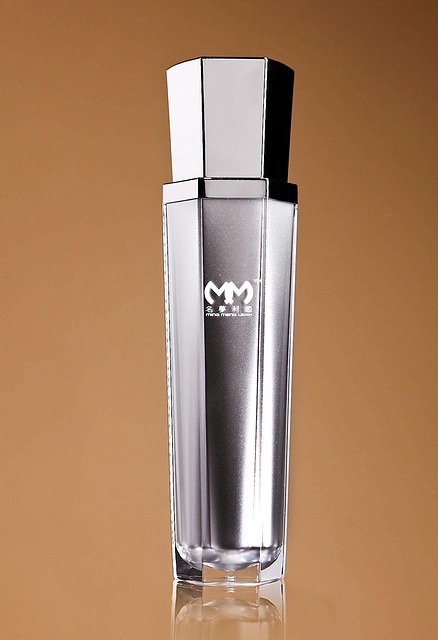Robust insurance for cosmetic surgeons, including medical malpractice and professional liability coverage, is vital to navigate risks associated with aesthetic procedures. Comprehensive policies protect against surgical errors, treatment negligence, and legal repercussions, safeguarding surgeons' reputations and financial stability in a competitive market. Investing in tailored insurance and staying informed about industry regulations enhances practice success and patient trust.
In the competitive realm of plastic surgery, safeguarding your practice against potential risks is paramount. Understanding the intricate web of insurance needs specific to cosmetic surgeons is a critical first step. This comprehensive guide navigates essential aspects, from unraveling medical malpractice coverage options to exploring legal considerations. By delving into these strategies, you’ll secure your business future, minimize risks, and maximize the benefits of insurance for cosmetic surgeons in today’s dynamic healthcare landscape.
- Understanding Insurance Needs for Cosmetic Surgeons
- Types of Coverage: Medical Malpractice and More
- How to Choose the Right Plastic Surgery Insurance
- Legal Considerations for Your Practice's Protection
- Building a Secure Future with Comprehensive Insurance
- Strategies to Minimize Risks and Maximize Benefits
Understanding Insurance Needs for Cosmetic Surgeons

In the competitive landscape of plastic surgery, maintaining a robust safety net is paramount. Understanding and securing appropriate insurance for cosmetic surgeons is an indispensable step for any successful practice. This extends beyond general liability insurance to specialized coverage that addresses the unique risks associated with aesthetic procedures.
Cosmetic surgeons must consider policies that encompass professional liability, covering potential malpractice claims arising from surgical errors or complications. Additionally, medical malpractice insurance safeguards against claims related to negligence in treatment, diagnosis, or aftercare. Given the high stakes involved in plastic surgery, these measures are not just recommended; they are essential for protecting both the surgeon’s reputation and financial well-being.
Types of Coverage: Medical Malpractice and More

When considering insurance for cosmetic surgeons, understanding the types of coverage available is paramount. Medical malpractice insurance is a cornerstone, shielding practitioners from financial repercussions in case of adverse patient outcomes due to negligence. This critical coverage extends legal defense costs and compensates patients if they file suit.
Beyond malpractice, comprehensive insurance packages often include professional liability, general liability, and workers’ compensation. Professional liability insures against claims arising from errors or omissions in surgical procedures, while general liability covers unexpected events like slip-and-falls on the premises. Workers’ compensation protects both employees and employers by providing benefits for work-related injuries or illnesses.
How to Choose the Right Plastic Surgery Insurance

Choosing the right plastic surgery insurance is a crucial step in safeguarding your business and protecting your financial future. As a cosmetic surgeon, it’s essential to consider specialized coverage options tailored to the unique risks associated with aesthetic procedures. Look for insurance providers that offer comprehensive packages encompassing liability protection, covering potential patient complications or dissatisfaction. This includes medical malpractice and professional liability, ensuring you’re prepared for any unforeseen incidents.
When selecting insurance for cosmetic surgeons, pay attention to policy details, exclusions, and the reputation of the insurer. Evaluate if the plan includes coverage for a wide range of procedures, from common facelift surgeries to complex reconstructive operations. Additionally, consider the claims process and customer support to ensure swift resolution in case of disputes or accidents. Picking the appropriate insurance will enable you to focus on delivering quality care while mitigating financial risks associated with your practice.
Legal Considerations for Your Practice's Protection

Protecting your plastic surgery business involves understanding and navigating legal considerations, especially in a highly regulated industry like cosmetology. One crucial aspect is securing adequate insurance for cosmetic surgeons. This isn’t just about meeting minimum requirements; it’s about safeguarding against potential risks and liabilities unique to the field. Professional liability insurance, also known as malpractice insurance, is essential, covering you against claims of negligence or medical mistakes.
Additionally, consider comprehensive general liability insurance that protects against a range of issues from property damage to personal injury. Compliance with local, state, and federal regulations is paramount. Keeping up-to-date with licensing requirements, patient consent forms, and data privacy laws like HIPAA ensures your practice operates within legal boundaries and mitigates potential legal repercussions.
Building a Secure Future with Comprehensive Insurance

In today’s competitive market, building a successful plastic surgery business requires more than just exceptional skills and a strong reputation. To safeguard your practice and ensure long-term prosperity, comprehensive insurance is an absolute necessity. This includes medical malpractice insurance tailored specifically for cosmetic surgeons, which acts as a shield against potential liabilities and financial losses.
Choosing the right insurance plan involves careful consideration of various factors such as coverage limits, policy exclusions, and specific needs related to your surgical procedures. With the increasing demand for cosmetic procedures, having robust insurance in place protects not only your business but also your patients. It ensures that any unforeseen incidents or complications are managed effectively, allowing you to maintain trust and deliver high-quality care without worrying about financial setbacks.
Strategies to Minimize Risks and Maximize Benefits

To safeguard your plastic surgery business, implement robust strategies that minimize risks and maximize benefits. One key step is obtaining comprehensive insurance for cosmetic surgeons. This protects your practice against unforeseen events, such as malpractice claims or accidental injuries during procedures. Choose policies tailored to cover the unique aspects of cosmetic surgery, including liability, professional indemnity, and property damage.
Additionally, stay updated on industry regulations and best practices. Regularly review and update your consent forms, patient intake processes, and safety protocols. By adhering to these measures, you can ensure a secure environment for patients, mitigate legal risks, and ultimately enhance the reputation of your plastic surgery business.
